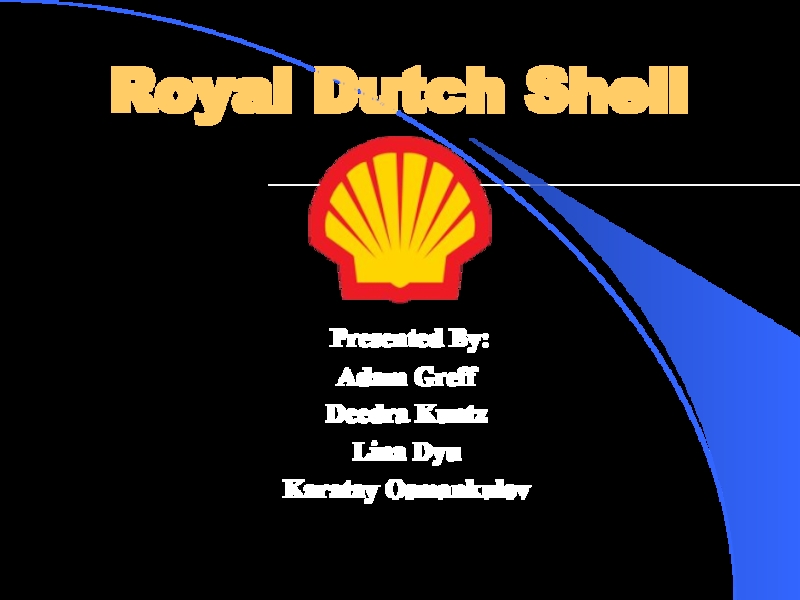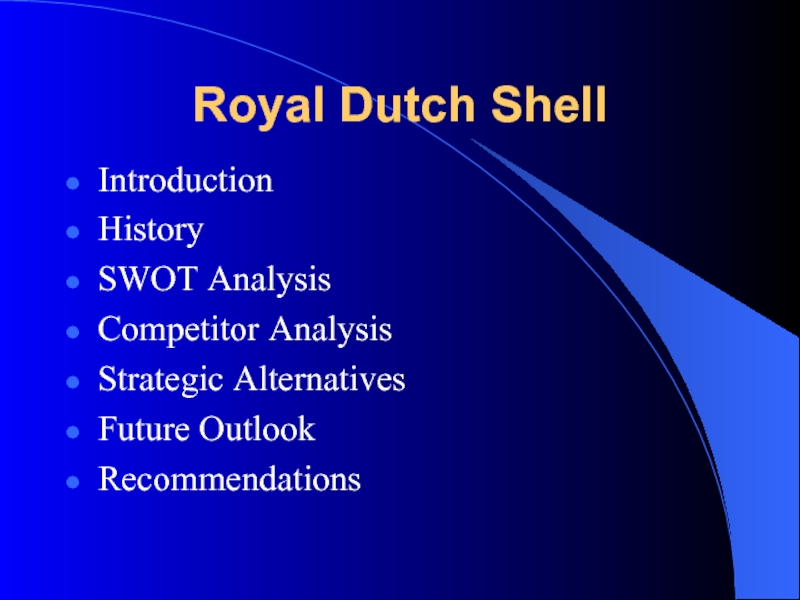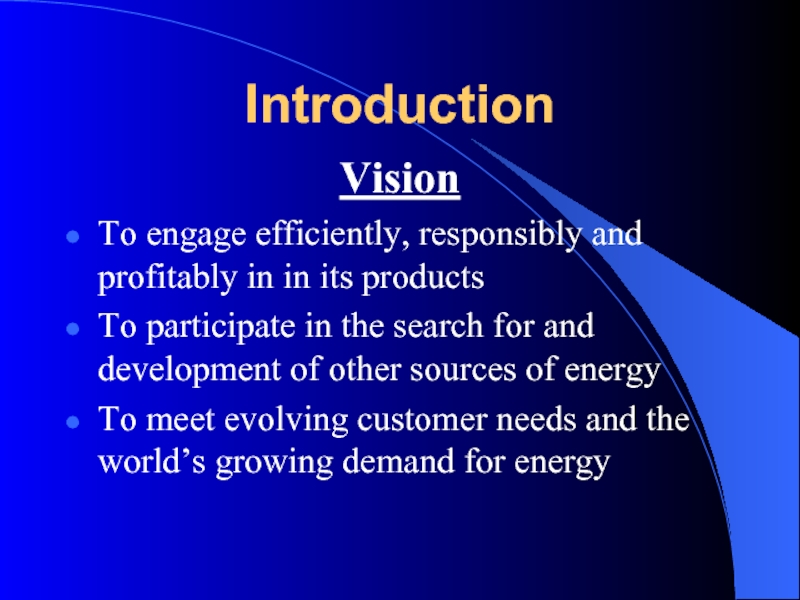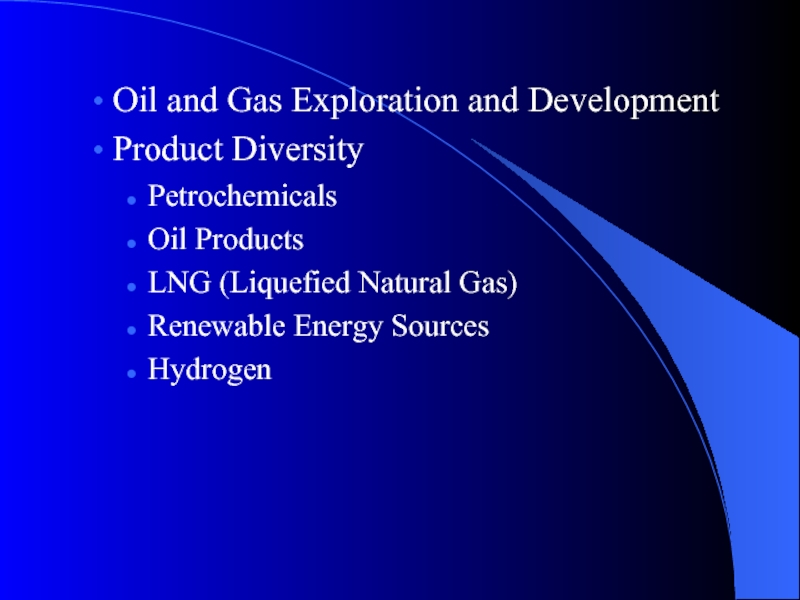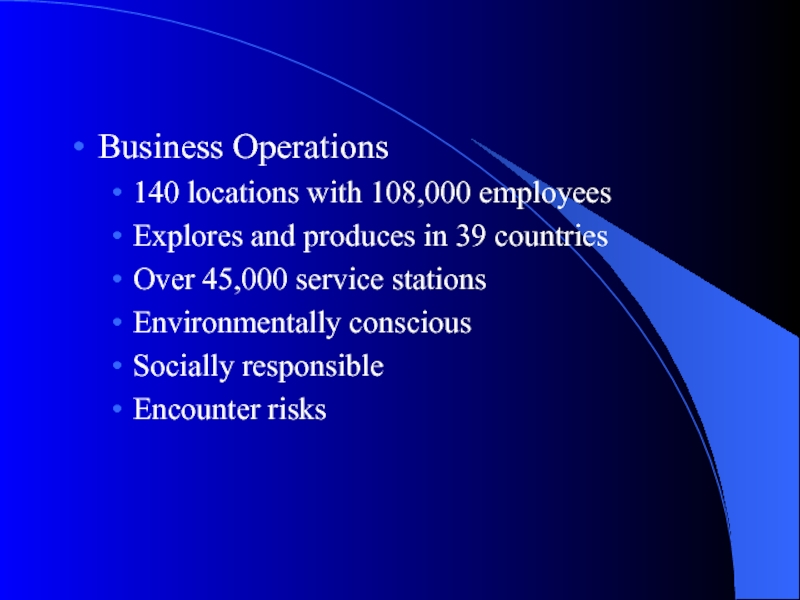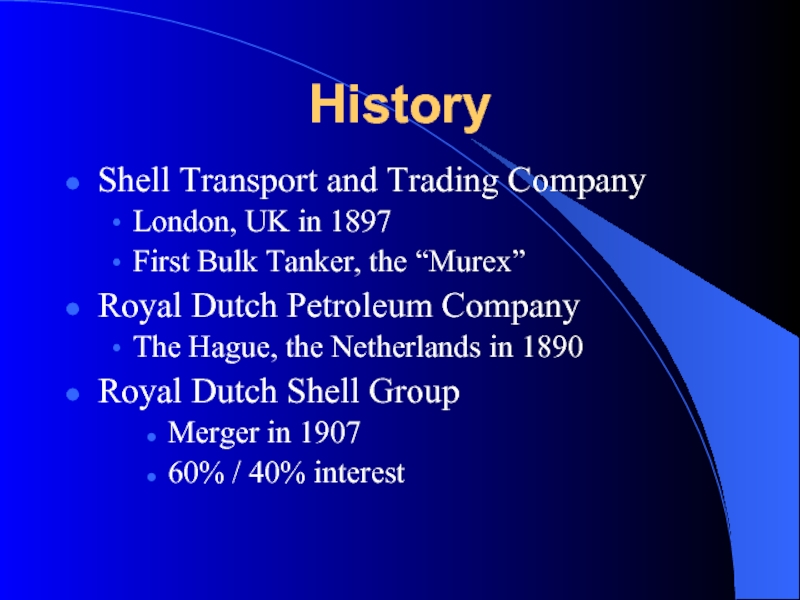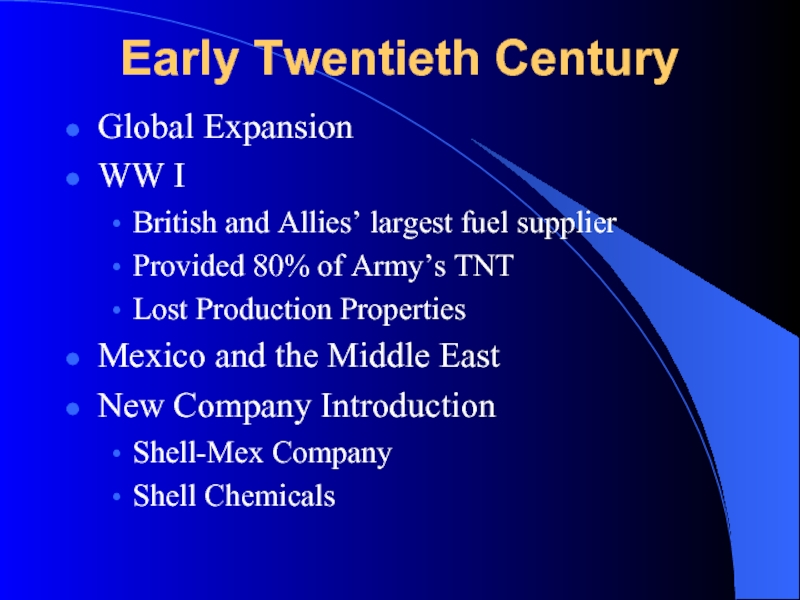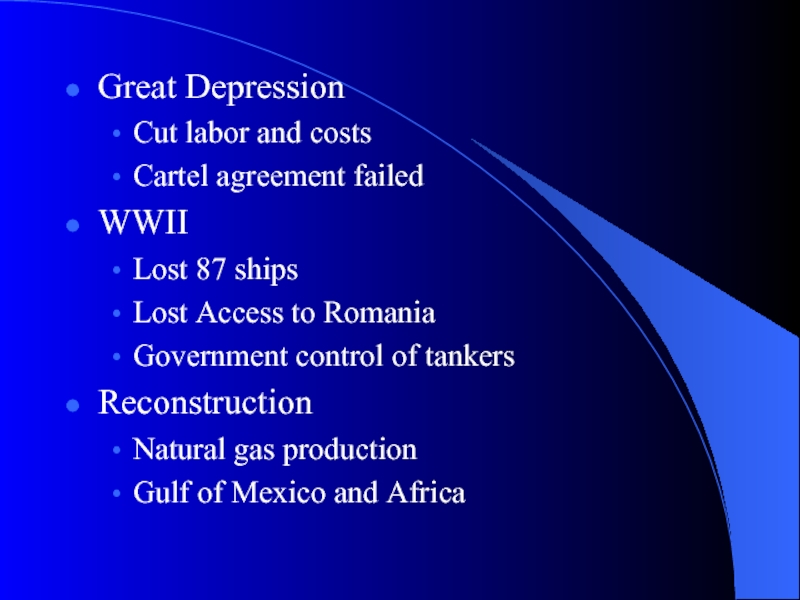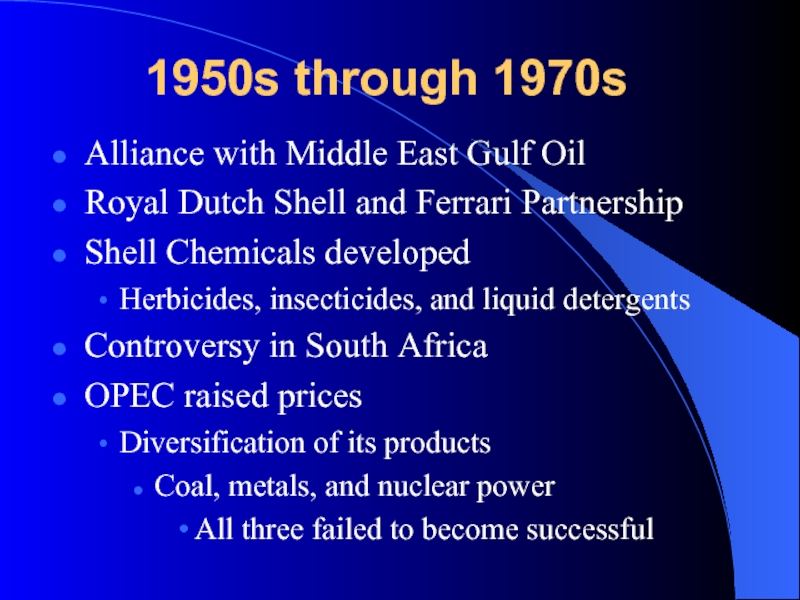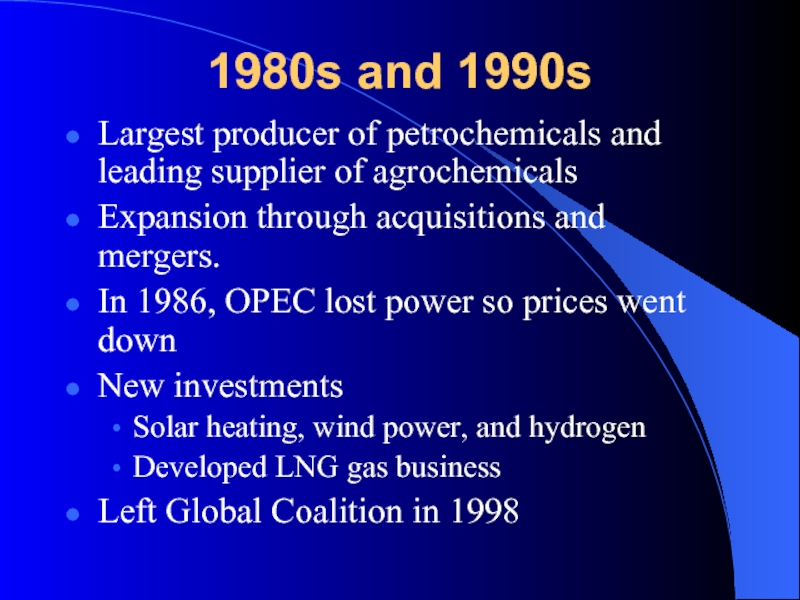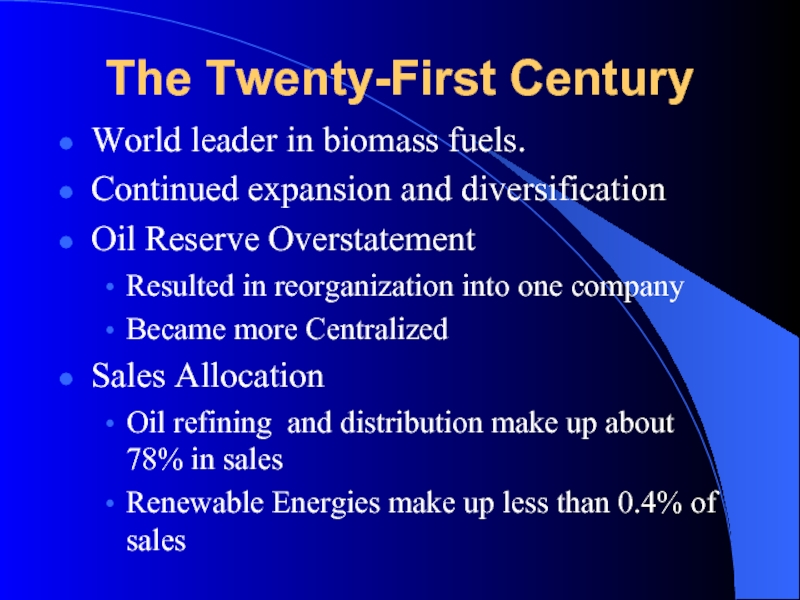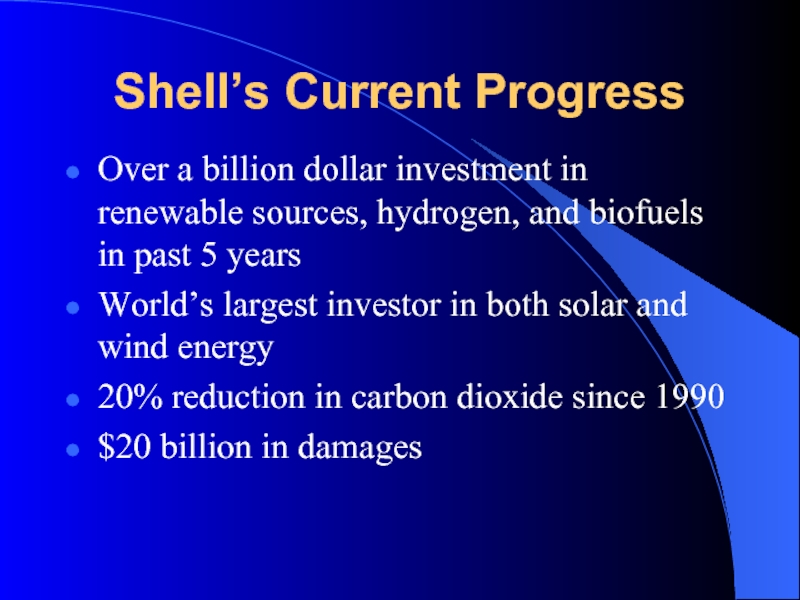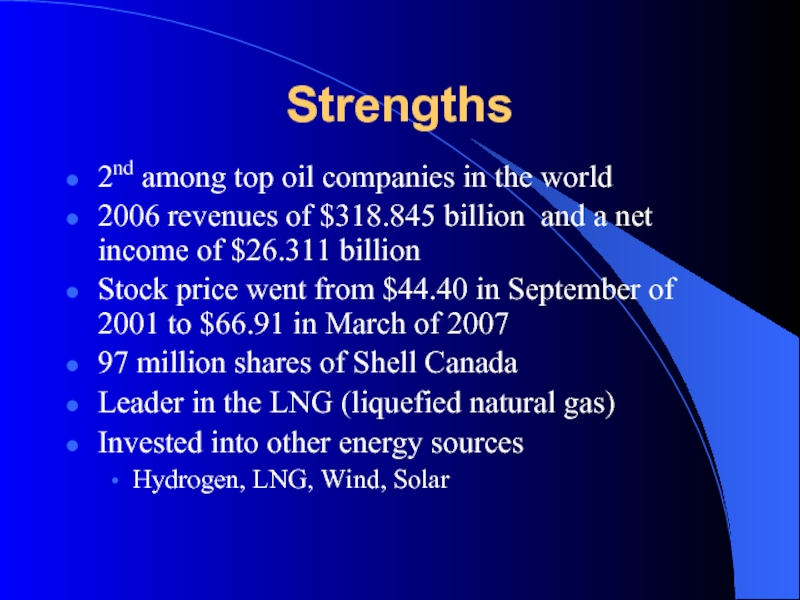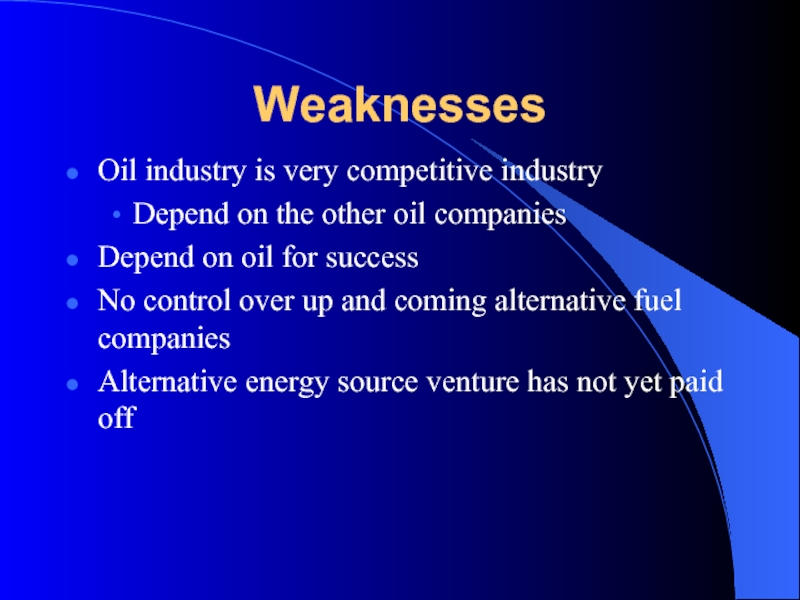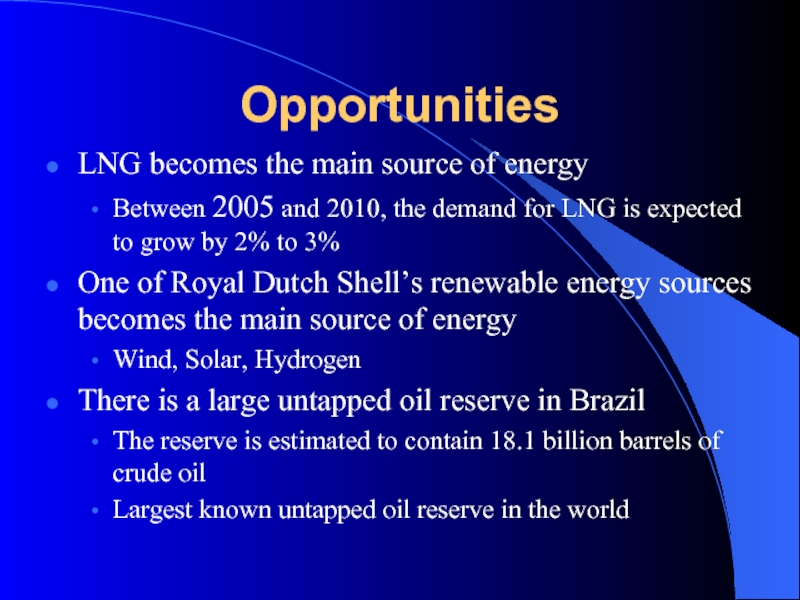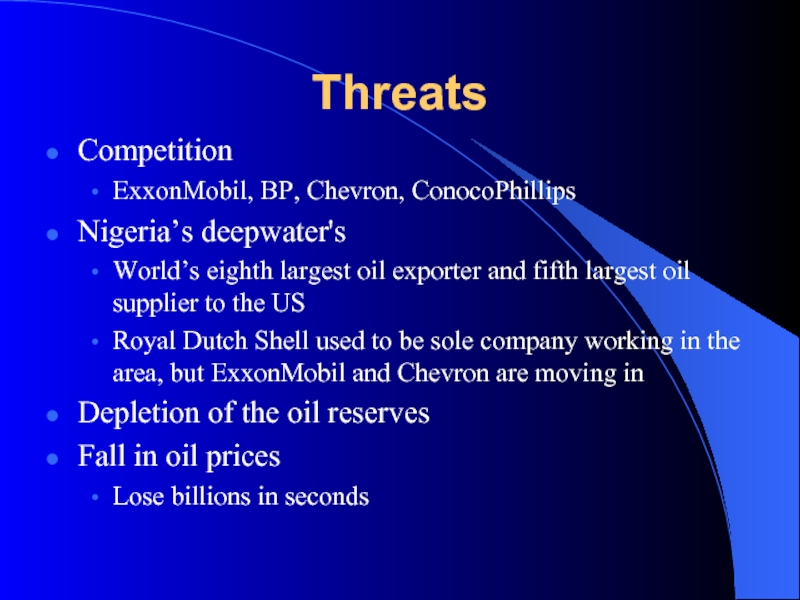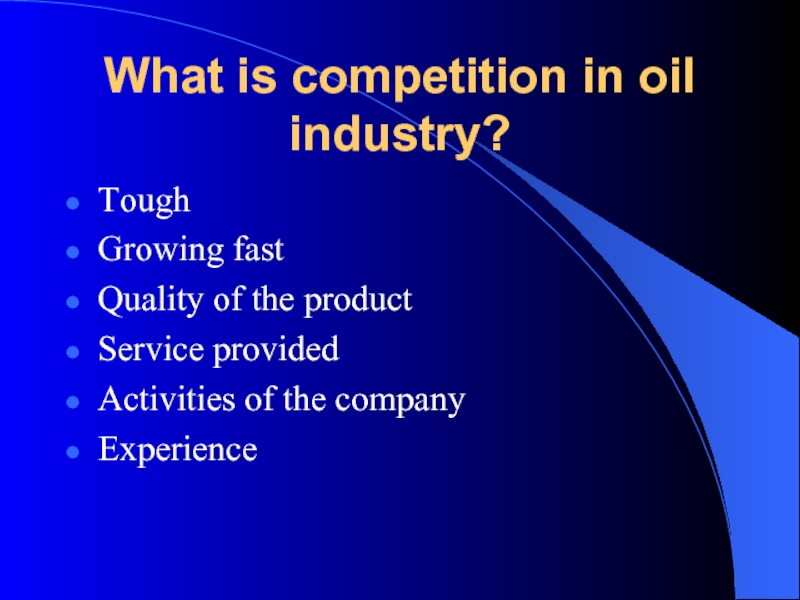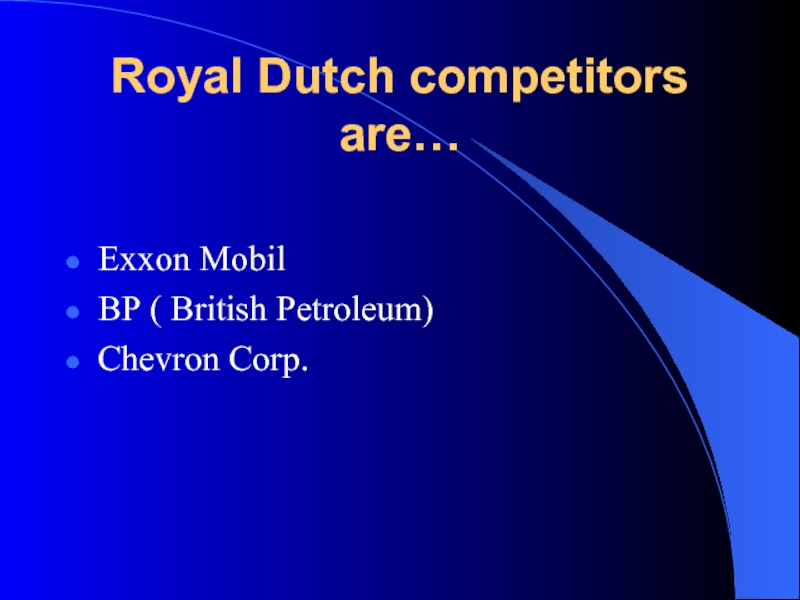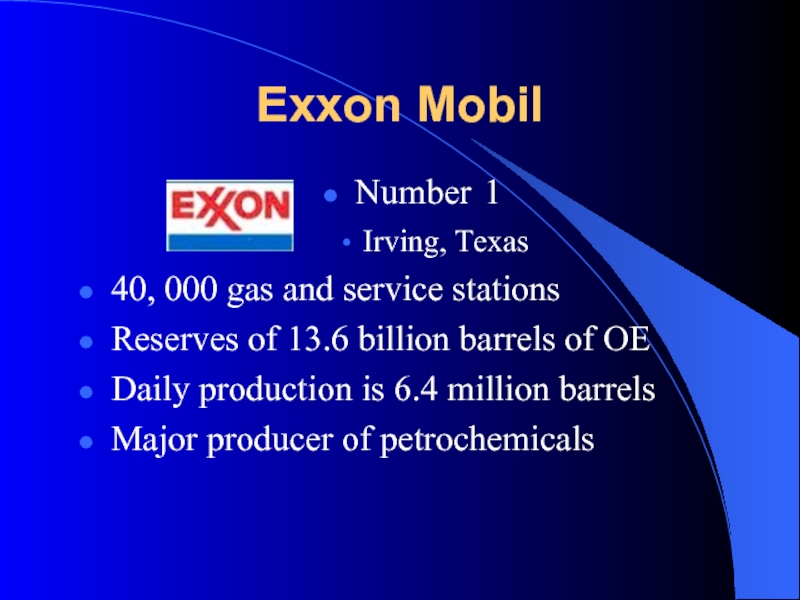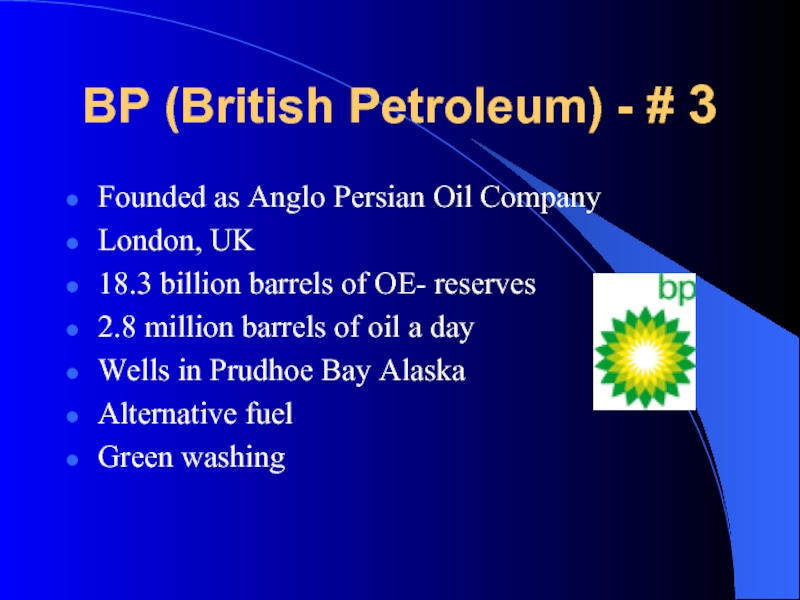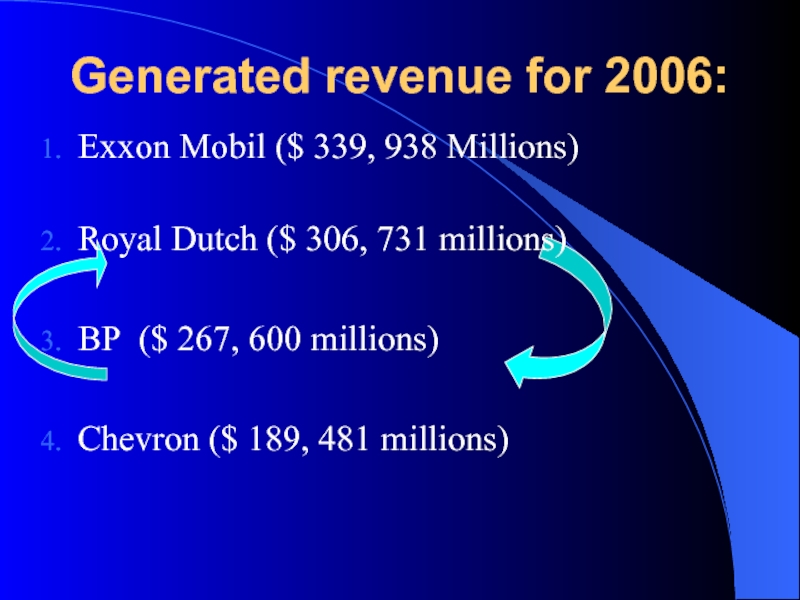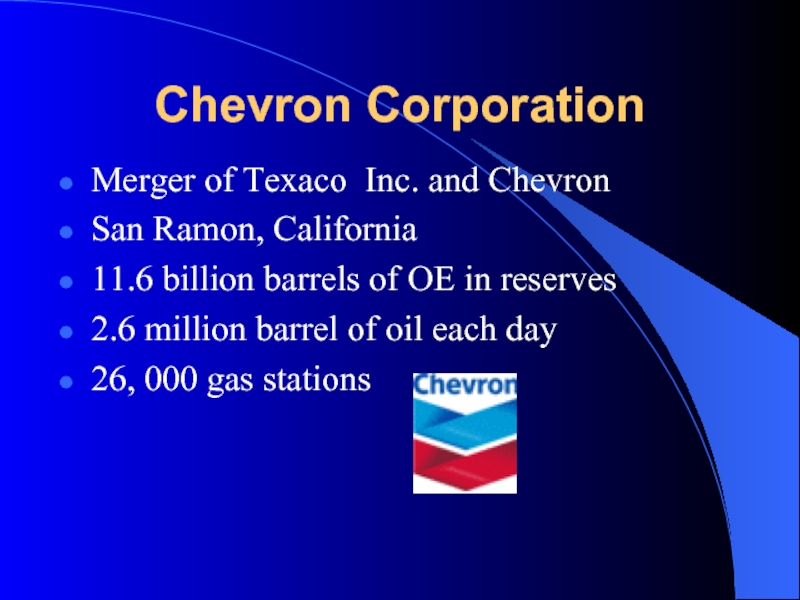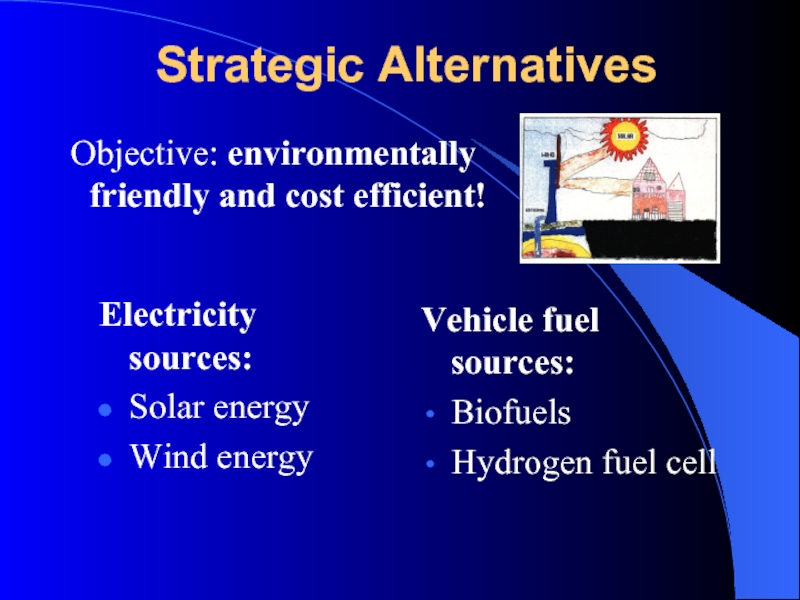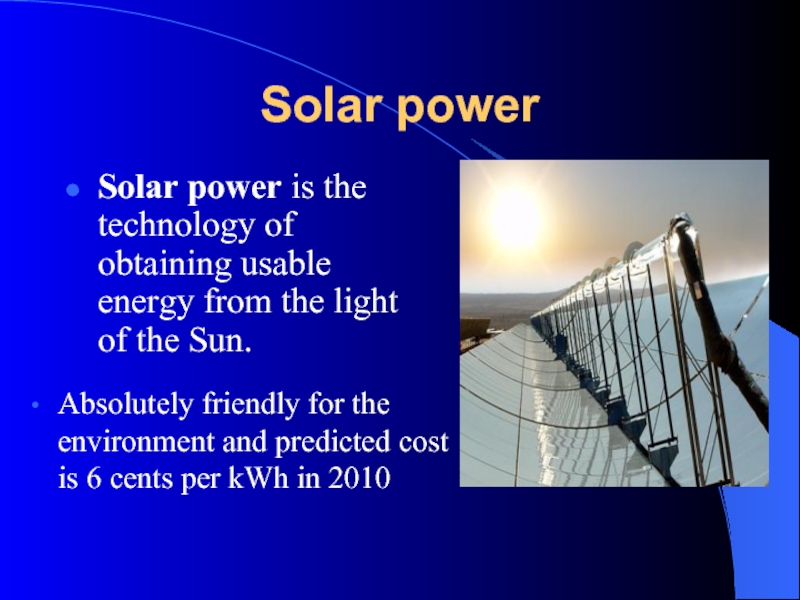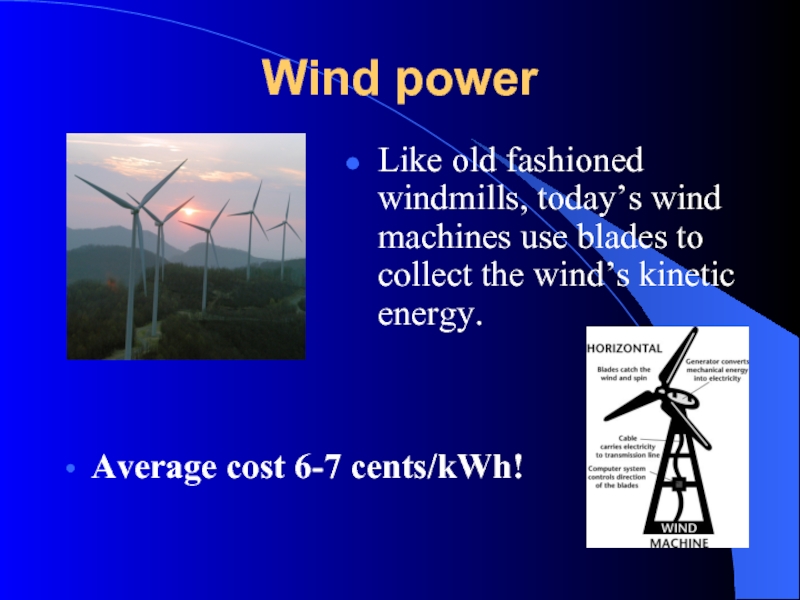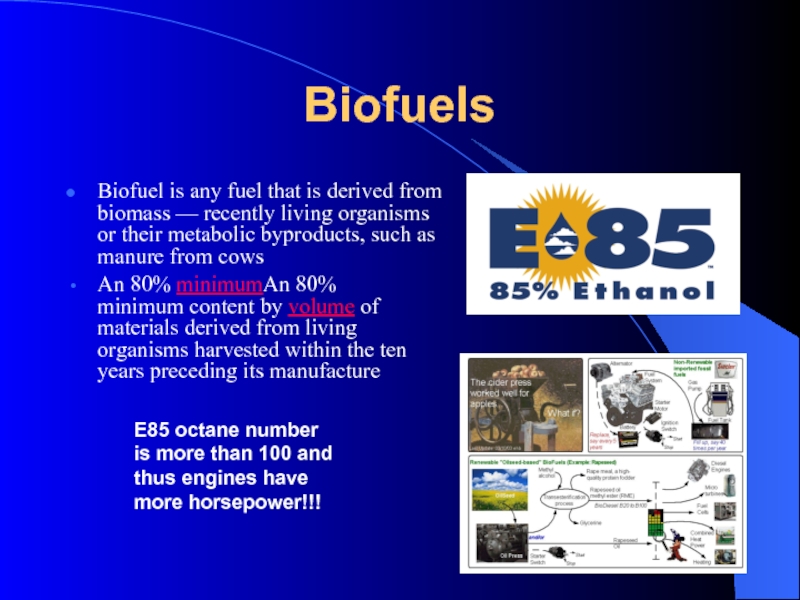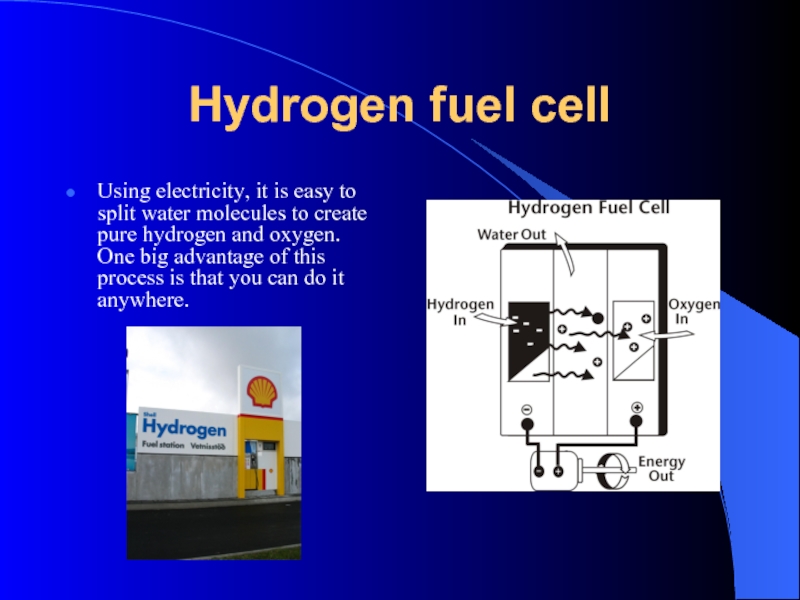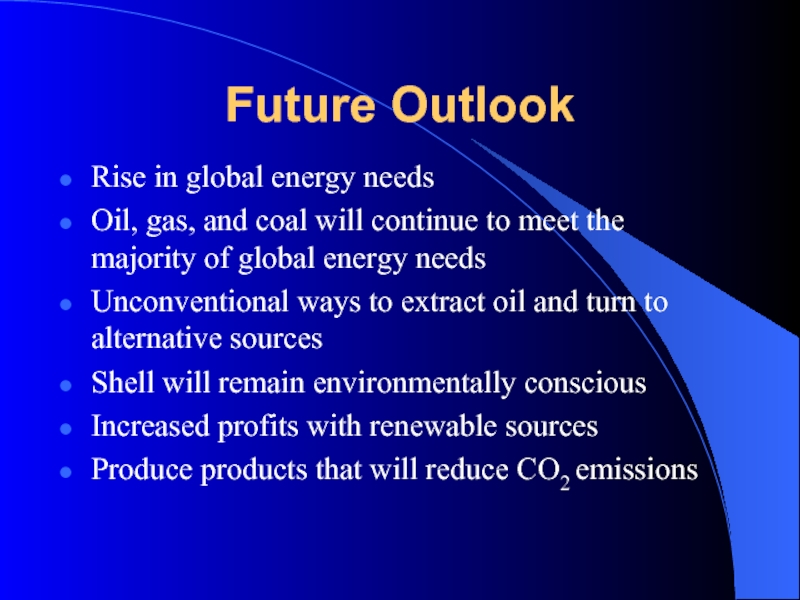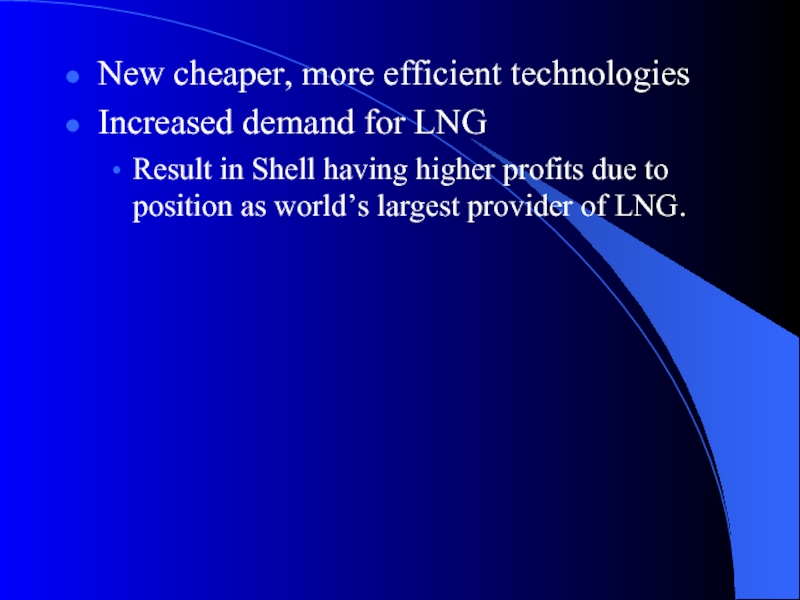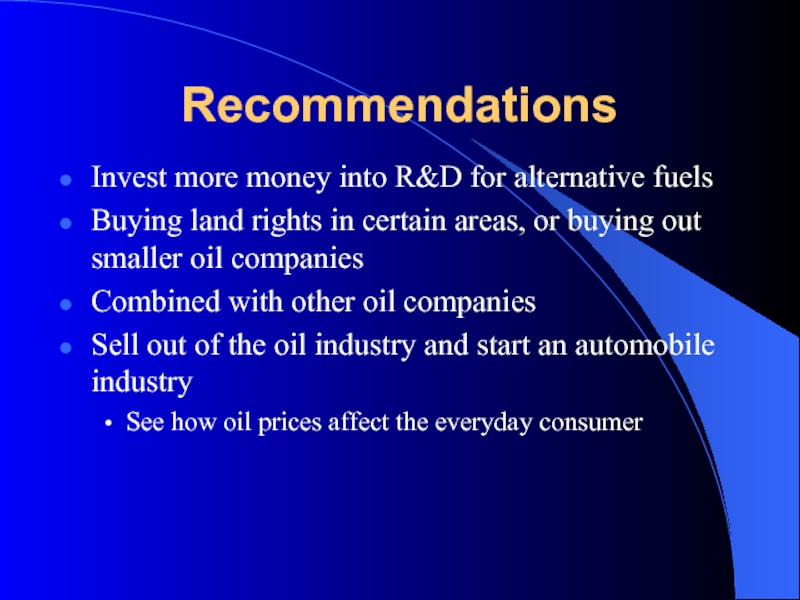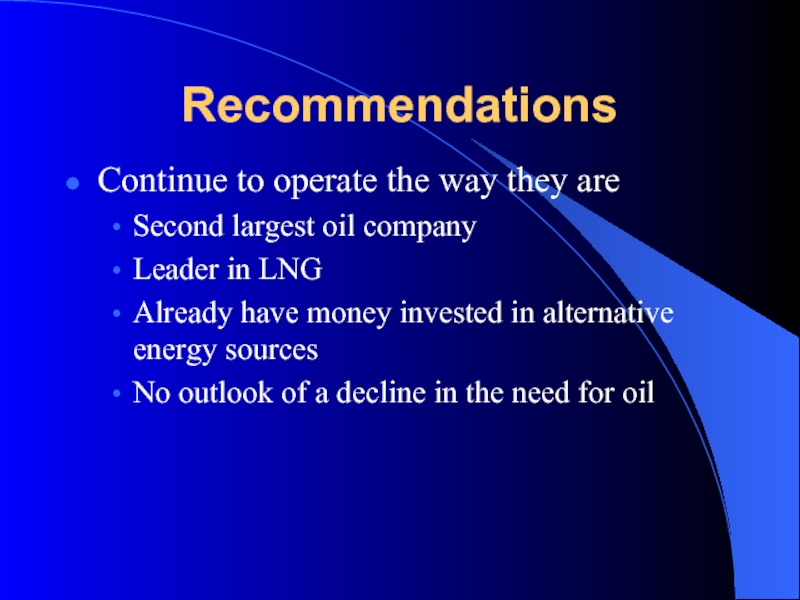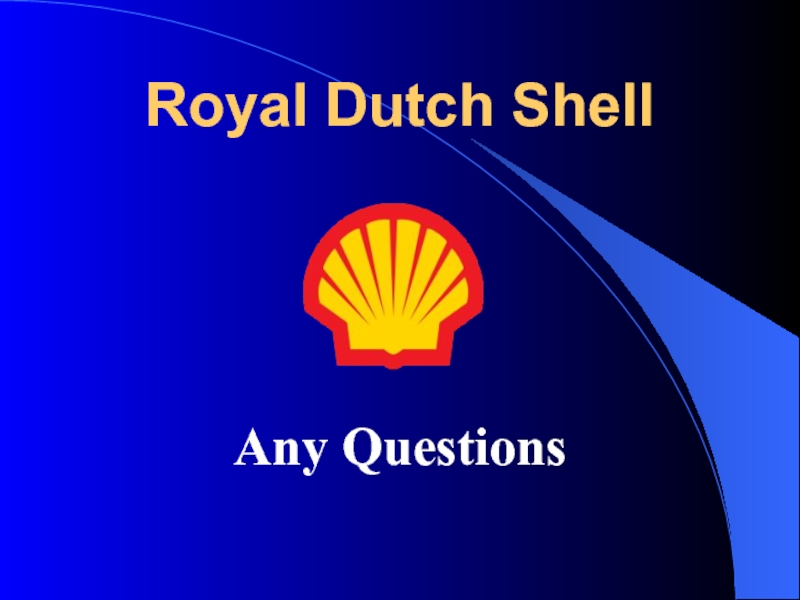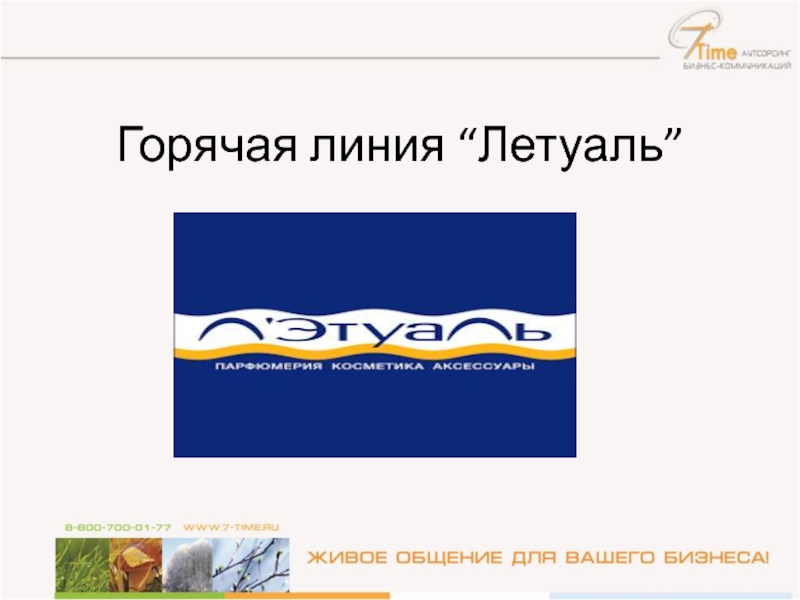- Главная
- Разное
- Дизайн
- Бизнес и предпринимательство
- Аналитика
- Образование
- Развлечения
- Красота и здоровье
- Финансы
- Государство
- Путешествия
- Спорт
- Недвижимость
- Армия
- Графика
- Культурология
- Еда и кулинария
- Лингвистика
- Английский язык
- Астрономия
- Алгебра
- Биология
- География
- Детские презентации
- Информатика
- История
- Литература
- Маркетинг
- Математика
- Медицина
- Менеджмент
- Музыка
- МХК
- Немецкий язык
- ОБЖ
- Обществознание
- Окружающий мир
- Педагогика
- Русский язык
- Технология
- Физика
- Философия
- Химия
- Шаблоны, картинки для презентаций
- Экология
- Экономика
- Юриспруденция
Royal Dutch Shell презентация
Содержание
- 1. Royal Dutch Shell
- 2. Royal Dutch Shell Introduction History SWOT Analysis
- 3. Introduction Vision To engage efficiently, responsibly and
- 4. Oil and Gas Exploration and Development
- 5. Business Operations 140 locations with 108,000 employees
- 6. History Shell Transport and Trading Company London,
- 7. Early Twentieth Century Global Expansion WW
- 8. Great Depression Cut labor and costs
- 9. 1950s through 1970s Alliance with Middle East
- 10. 1980s and 1990s Largest producer of petrochemicals
- 11. The Twenty-First Century World leader in biomass
- 12. Shell’s Current Progress Over a billion
- 13. Strengths 2nd among top oil companies in
- 14. Weaknesses Oil industry is very competitive industry
- 15. Opportunities LNG becomes the main source of
- 16. Threats Competition ExxonMobil, BP, Chevron, ConocoPhillips Nigeria’s
- 17. What is competition in oil industry? Tough
- 18. Royal Dutch competitors are… Exxon Mobil BP ( British Petroleum) Chevron Corp.
- 19. Exxon Mobil Number 1 Irving, Texas 40,
- 20. BP (British Petroleum) - # 3 Founded
- 21. Generated revenue for 2006:
- 22. Chevron Corporation Merger of Texaco Inc. and
- 23. Strategic Alternatives Electricity sources: Solar energy Wind
- 24. Solar power Solar power is the technology
- 25. Wind power Like old fashioned windmills,
- 26. Biofuels Biofuel is any fuel that is
- 27. Hydrogen fuel cell Using electricity, it is
- 28. Future Outlook Rise in global energy needs
- 29. New cheaper, more efficient technologies Increased
- 30. Recommendations Invest more money into R&D for
- 31. Recommendations Continue to operate the way they
- 32. Any Questions Royal Dutch Shell
Слайд 2Royal Dutch Shell
Introduction
History
SWOT Analysis
Competitor Analysis
Strategic Alternatives
Future Outlook
Recommendations
Слайд 3Introduction
Vision
To engage efficiently, responsibly and profitably in in its products
To
To meet evolving customer needs and the world’s growing demand for energy
Слайд 4
Oil and Gas Exploration and Development
Product Diversity
Petrochemicals
Oil Products
LNG (Liquefied Natural
Renewable Energy Sources
Hydrogen
Слайд 5Business Operations
140 locations with 108,000 employees
Explores and produces in 39 countries
Over
Environmentally conscious
Socially responsible
Encounter risks
Слайд 6History
Shell Transport and Trading Company
London, UK in 1897
First Bulk Tanker, the
Royal Dutch Petroleum Company
The Hague, the Netherlands in 1890
Royal Dutch Shell Group
Merger in 1907
60% / 40% interest
Слайд 7Early Twentieth Century
Global Expansion
WW I
British and Allies’ largest fuel supplier
Provided
Lost Production Properties
Mexico and the Middle East
New Company Introduction
Shell-Mex Company
Shell Chemicals
Слайд 8
Great Depression
Cut labor and costs
Cartel agreement failed
WWII
Lost 87 ships
Lost Access
Government control of tankers
Reconstruction
Natural gas production
Gulf of Mexico and Africa
Слайд 91950s through 1970s
Alliance with Middle East Gulf Oil
Royal Dutch Shell
Shell Chemicals developed
Herbicides, insecticides, and liquid detergents
Controversy in South Africa
OPEC raised prices
Diversification of its products
Coal, metals, and nuclear power
All three failed to become successful
Слайд 101980s and 1990s
Largest producer of petrochemicals and leading supplier of agrochemicals
Expansion
In 1986, OPEC lost power so prices went down
New investments
Solar heating, wind power, and hydrogen
Developed LNG gas business
Left Global Coalition in 1998
Слайд 11The Twenty-First Century
World leader in biomass fuels.
Continued expansion and diversification
Oil
Resulted in reorganization into one company
Became more Centralized
Sales Allocation
Oil refining and distribution make up about 78% in sales
Renewable Energies make up less than 0.4% of sales
Слайд 12Shell’s Current Progress
Over a billion dollar investment in renewable sources, hydrogen,
World’s largest investor in both solar and wind energy
20% reduction in carbon dioxide since 1990
$20 billion in damages
Слайд 13Strengths
2nd among top oil companies in the world
2006 revenues of $318.845
Stock price went from $44.40 in September of 2001 to $66.91 in March of 2007
97 million shares of Shell Canada
Leader in the LNG (liquefied natural gas)
Invested into other energy sources
Hydrogen, LNG, Wind, Solar
Слайд 14Weaknesses
Oil industry is very competitive industry
Depend on the other oil companies
Depend
No control over up and coming alternative fuel companies
Alternative energy source venture has not yet paid off
Слайд 15Opportunities
LNG becomes the main source of energy
Between 2005 and 2010, the
One of Royal Dutch Shell’s renewable energy sources becomes the main source of energy
Wind, Solar, Hydrogen
There is a large untapped oil reserve in Brazil
The reserve is estimated to contain 18.1 billion barrels of crude oil
Largest known untapped oil reserve in the world
Слайд 16Threats
Competition
ExxonMobil, BP, Chevron, ConocoPhillips
Nigeria’s deepwater's
World’s eighth largest oil exporter and fifth
Royal Dutch Shell used to be sole company working in the area, but ExxonMobil and Chevron are moving in
Depletion of the oil reserves
Fall in oil prices
Lose billions in seconds
Слайд 17What is competition in oil industry?
Tough
Growing fast
Quality of the product
Service provided
Activities
Experience
Слайд 19Exxon Mobil
Number 1
Irving, Texas
40, 000 gas and service stations
Reserves of
Daily production is 6.4 million barrels
Major producer of petrochemicals
Слайд 20BP (British Petroleum) - # 3
Founded as Anglo Persian Oil Company
London,
18.3 billion barrels of OE- reserves
2.8 million barrels of oil a day
Wells in Prudhoe Bay Alaska
Alternative fuel
Green washing
Слайд 21
Generated revenue for 2006:
Exxon Mobil ($ 339, 938 Millions)
Royal Dutch ($
BP ($ 267, 600 millions)
Chevron ($ 189, 481 millions)
Слайд 22Chevron Corporation
Merger of Texaco Inc. and Chevron
San Ramon, California
11.6 billion barrels
2.6 million barrel of oil each day
26, 000 gas stations
Слайд 23Strategic Alternatives
Electricity sources:
Solar energy
Wind energy
Objective: environmentally friendly and cost efficient!
Vehicle fuel
Biofuels
Hydrogen fuel cell
Слайд 24Solar power
Solar power is the technology of obtaining usable energy from
Absolutely friendly for the environment and predicted cost is 6 cents per kWh in 2010
Слайд 25Wind power
Like old fashioned windmills, today’s wind machines use blades
Average cost 6-7 cents/kWh!
Слайд 26Biofuels
Biofuel is any fuel that is derived from biomass — recently
An 80% minimumAn 80% minimum content by volume of materials derived from living organisms harvested within the ten years preceding its manufacture
E85 octane number is more than 100 and thus engines have more horsepower!!!
Слайд 27Hydrogen fuel cell
Using electricity, it is easy to split water molecules
Слайд 28Future Outlook
Rise in global energy needs
Oil, gas, and coal will continue
Unconventional ways to extract oil and turn to alternative sources
Shell will remain environmentally conscious
Increased profits with renewable sources
Produce products that will reduce CO2 emissions
Слайд 29
New cheaper, more efficient technologies
Increased demand for LNG
Result in Shell having
Слайд 30Recommendations
Invest more money into R&D for alternative fuels
Buying land rights in
Combined with other oil companies
Sell out of the oil industry and start an automobile industry
See how oil prices affect the everyday consumer
Слайд 31Recommendations
Continue to operate the way they are
Second largest oil company
Leader in
Already have money invested in alternative energy sources
No outlook of a decline in the need for oil
